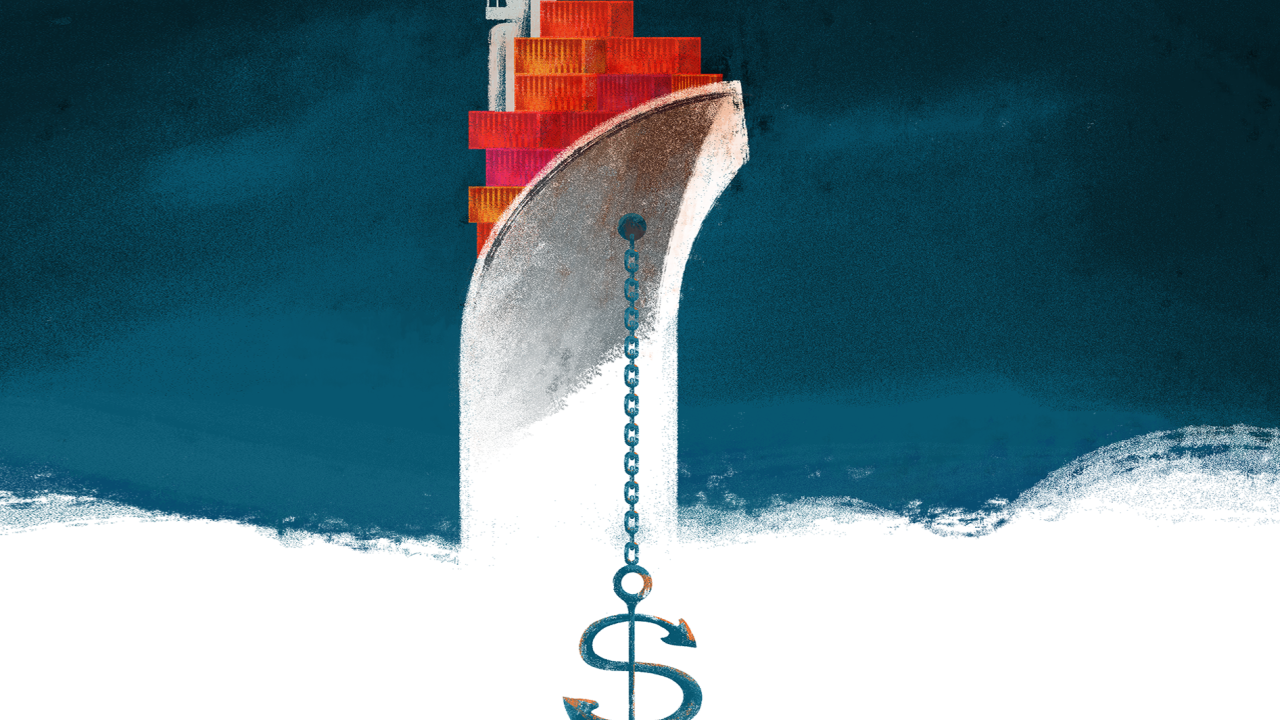Tycoon Li Ka-shing’s company at first appeared to be making a calculated move to avoid getting caught up in a geopolitical storm after US President Donald Trump vowed to free the canal from what he saw as Chinese influence.
But Beijing soon signalled its wrath over the transaction amid fears that it threatened national interests and security. China’s market regulator eventually weighed in, announcing it would launch an antitrust probe, a move that coincided with news that a scheduled signing of the deal would not go ahead.
The twists and turns show no sign of ending. Once again, Hong Kong finds itself caught in the middle of the rivalry between Beijing and Washington.

A week after CK Hutchison announced the deal, the first signs emerged that Beijing was angered, as its two top offices overseeing Hong Kong affairs made an unusual move to share scathing articles that said the deal harmed national interests.
Stock price fluctuations
The conglomerate’s share price has been on a roller-coaster ride ever since. (figures in HK$)

The weight of words
The Hong Kong and Macau Affairs Office and Beijing’s liaison office in the city have each shared 11 articles that accuse CK Hutchison of betraying the Chinese people and slam the US for resorting to “economic coercion”.
The Post’s review found that the most used word in the pieces posted between March 15 and April 3 was “country”.
The canal and CK Hutchison in time
Washington funded the construction of the Panama Canal in the early 20th century and the trade passage was controlled by American authorities until 1999, when Panama took over following an agreement with the US government.
A CK Hutchison subsidiary has operated two of five ports at either end of the canal since it won a 25-year lease in 1997. The contract automatically renewed in 2021, allowing the company to continue controlling the Balboa and Cristobal ports until 2047.
Washington’s interest
The sheer volume of US trade traffic passing through the canal has put it firmly on Trump’s radar.
Global reach
CK Hutchison currently operates 53 ports in 24 countries. Under the deal with BlackRock, the conglomerate plans to sell all its ports except the 10 it operates in mainland China and Hong Kong.
Counting containers

How big is a TEU?
A twenty-foot equivalent unit (TEU) is a standard measure of the capacity of container ships and shipping terminals.
Worse than a past proposal?
The latest US$23 billion deal would hand the consortium units that hold 80 per cent of CK Hutchison’s ports group. The conglomerate is set to pocket US$19 billion in cash.
It is not the first time a sale has been on the cards.
The Post in 2015 reported that CK Hutchison was considering selling a 40 per cent stake in its ports business to a consortium of mainland firms. A source had said the stake was valued at HK$150 billion to HK$160 billion, but the deal did not proceed as the buyers felt it was “excessively overvalued”.
One of the recent critical news articles shared by Beijing’s offices accused the conglomerate of trying to engineer an “unusual deal” that did not maximise profit.
Details of the deal
Much of the focus has been on BlackRock.
But a low profile Italian-Swiss family behind the Mediterranean Shipping Company (MSC) is also taking a leading role in the consortium through its Terminal Investment Limited (TiL) ports arm.
The Post has reported that TiL aims to acquire 41 of the ports in the deal, with BlackRock controlling the two in Panama.
The Aponte family is already a dominant player in the shipping world, but the deal could also lead to MSC effectively becoming the largest global port operator.

International profile
Compared with other Hong Kong conglomerates, CK Hutchison has a more international profile as the company has shifted its focus to overseas markets, especially Europe, over the past decade, instead of overwhelmingly relying on local and mainland markets.
What’s next
China’s market regulator has not revealed the details of its antitrust probe such as whether it has started investigations and the scope of its assessment. Lawyers have said the regulator may implement anti-monopoly measures, such as prohibiting or conditionally approving the transaction.
According to the deal between CK Hutchison and BlackRock, both parties have 145 days to exclusively come to a definitive agreement. After the window closes, the conglomerate could sell its stakes to others. Secrecy shrouds the start and end date of this blackout period.
Analysts have said the Hong Kong-based firm is caught in a dilemma as none of the possible options will allow it to escape unscathed amid escalating US-China tensions.
They have also warned that cancelling the deal will incur huge compensation costs while opening the company up to accusations from the US and the West that it is under the Communist Party’s thumb.
Legal challenges could still sink the deal.
Panama’s comptroller general in April ruled that CK Hutchison had deprived the country of more than US$1.3 billion through the decades-old ports concession that was “negotiated against the republic”, following a sweeping financial audit.
Two Panamanian lawyers have filed a legal bid to challenge the law that approved the contract, with the country’s Supreme Court expected to begin discussing its ruling on the case in April. The pair have argued that the control of the canal ports by CK Hutchison’s subsidiary “undermines” the country’s sovereignty.
Associate Creative Director Marcelo Duhalde
Additional research by Alfred Lam
Edited by Kieran Cash
SHARE THIS STORY

